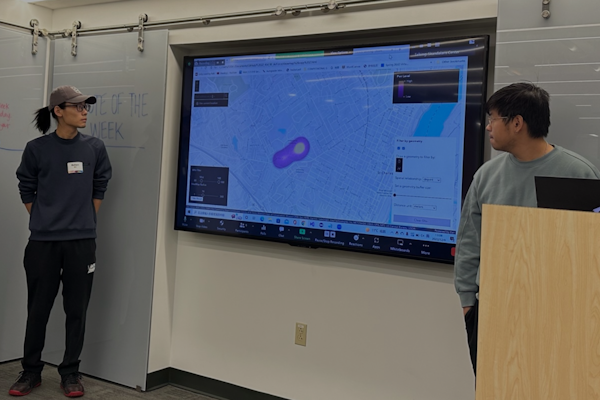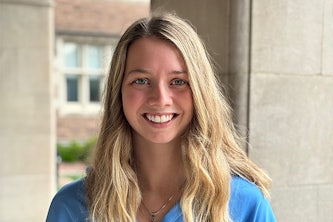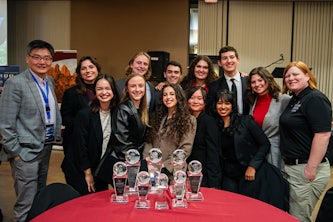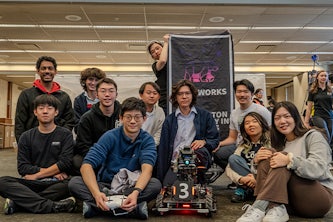Computer science students showcase national security solutions
Jon Shidal’s class works with National Security Innovation Network

Computer science students in the McKelvey School of Engineering at Washington University in St. Louis showcased their ability to solve national security and defense problems this semester through the NSIN Capstone course, to gain insight and real-world experience in innovation.
The National Security Innovation Network has partnered with Washington University in St. Louis to build pathways to national service through opportunities for innovative capstone projects, paid summer fellowships and entrepreneurial experiences to commercialize Department of Defense intellectual property.
Computer science capstone projects were sourced in partnership with Whiteman Air Force Base and designed to expedite experience with real problem sets. Students presented solutions that demonstrated an entrepreneurial mindset and innovation in action by developing new solutions and software to support the Department of Defense.
“It was an exciting semester with diverse projects from different domains, including industry, Department of Defense and the Armed Forces, and a group working on software for research on campus,” said Jon Shidal, senior lecturer and capstone instructor.
The Dec. 8 event was held in partnership with McKelvey Engineering and the National Security Innovation Network at the Skandalaris Center for Interdisciplinary Innovation and Entrepreneurship and welcomed leaders from across Missouri representing DoD, industry and university partners to hear student presentations.
The Pilot Training Phase Development for UASFB worked with the 393rd Bomb Squadron to understand the current B-2 Spirit pilot scheduling process and training methods. Through client interviews and prototyping, the students were able to improve training, tracking and improve some processes by a factor of 10.
For more information on NSIN, contact Mike Seper, NSIN Regional Engagement Principal and Skandalaris Center Expert on Call.




